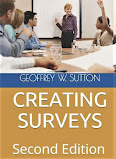 |
| Pentecostal worship from Bing free to use |
Trice and Bjorck
(2006b) conducted a survey of Pentecostals to determine their views on the
causes and cures of depression. Their set of 25 treatment (i.e., cure) items is available
for researchers.
There are
25 “cure” or treatment items in their survey. These items are divided into categories,
which are reported below along with alpha values found in their article (Trice
& Bjork, 2006b).
Spiritual discipline (.60)
Faith practices (.63)
Rest (.76)
Support (.61)
Health (.57)
Psychology/psychiatry (.72)
Neurology (.62)
Instructions
Prior to completing the survey, participants are given the
following definition of depression:
"Depression is a disorder of mood (e.g., feelings,
emotions) characterized by sadness and dejection, decreased motivation and
interest in life, negative thoughts, and such physical symptoms as sleep
disturbance, loss of appetite, and fatigue. Moreover, these characteristics
last at least 2 weeks."
Format
For the 25 treatment items, participants rate each regarding
its effectiveness as a treatment for depression using the same 7-point scale.
Sample items
prayer with laying on of hands
pastoral counseling
Permission
"Test
content may be reproduced and used for non-commercial research and educational
purposes without seeking written permission. Distribution must be controlled,
meaning only to the participants engaged in the research or enrolled in the
educational activity. Any other type of reproduction or distribution of test
content is not authorized without written permission from the author and
publisher. Always include a credit line that contains the source citation and
copyright owner when writing about or using any test." (Trice & Bjorck, 2006a)
Notes
As a part
of their conclusion, the authors reported:
"The endorsement of faith practices (including Scripture memorization, confessing sin, fasting, prayer with laying on of hands, deliverance/exorcism, individual prayer, and the avoidance of Yoga meditation1) as the most effective treatments for depression is consistent with Pentecostal doctrines." (p.287)
This study cited
in Sutton's review of counseling and psychotherapy techniques with Pentecostal and charismatic Christians (2021).
See Trice & Bjorck (2006b) for details on the study and items related to causes of depression.
Resource Link: A – Z Test Index
References
Sutton, G. W.
(2021). Counseling and psychotherapy with Pentecostal and Charismatic
Christians: Culture & Research | Assessment & Practice.
Springfield, MO: Sunflower. ISBN-13
: 979-8681036524 AMAZON
Trice, P. D., & Bjorck, J. P. (2006a).
Depression Cause and Cure Survey. PsycTESTS. https://doi.org/10.1037/t25036-000
Trice, P. D.,
& Bjorck, J. P. (2006b). Pentecostal perspectives on causes and cures
of depression. Professional Psychology: Research and Practice, 37(3),
283-294. doi: https://dx.doi.org/10.1037/0735-7028.37.3.283
Creating Surveys on AMAZON or GOOGLE Worldwide
Links to Connections
Checkout My Page www.suttong.com
My Books AMAZON and GOOGLE STORE
FOLLOW me on FACEBOOK Geoff
W. Sutton TWITTER @Geoff.W.Sutton
PINTEREST www.pinterest.com/GeoffWSutton
Articles: Academia Geoff
W Sutton ResearchGate
Geoffrey W Sutton

Comments
Post a Comment